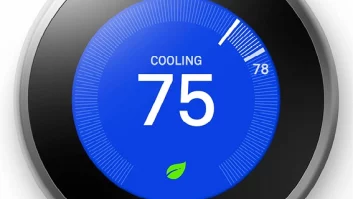NEW YORK —
Google’s planned purchase of Motorola
Mobility could benefit both companies, potentially
drive Android OS improvements, and help protect
handset vendors that license the OS from patent-infringement
suits, multiple analysts said.
But many of the gains depend on the Internet giant’s
ability to manage its Motorola relationship without
alienating handset vendors that currently license
Google’s Android OS and compete with Motorola for
smartphone market share, analysts noted.
Google expects to complete the transaction by the
end of this year or early next, pending regulatory approval.
Money-losing Motorola Mobility will benefit from
Google’s financial strength, which could be applied
to building the handset maker’s distribution outside
the U.S., analysts said. Motorola ranked sixth in global
smartphone market share in the second quarter, according
to IHS iSuppli.
For its part, Google will be able to use thousands of
Motorola mobile-phone patents to threaten retaliation
against smartphone-OS rivals Apple and Microsoft,
potentially dissuading them from lodging any more
patent-infringement actions against Google’s Android
licensees. “Android will be more protected,” IDC analyst Ramon Llamas told TWICE.
“From an intellectual property (IP) standpoint, the
acquisition bolsters Google’s negotiating position
with Apple in the event that Apple goes after Androidbased
products the same way it did with Samsung in
Europe,” added Francis Sideco, IHS’s wireless communications
principal analyst. “If nothing else, Google
will be able to assert Motorola’s IP for the 3GPP and
3GPP2 cellphone specifications, which are used in
both the iPhone and iPad.”
To improve Android’s capabilities, Google and Motorola
could work together to develop smartphones
as iconic as the iPhone with software and hardware
that is as tightly integrated as it is in iPhone, said SNL
Kagan senior analyst Sharon Armbrust. Alternately,
Google and Motorola could develop hardware reference
designs that other handset vendors could adopt
to improve the user experience. “Android’s potential as
a write-once run everywhere OS has not been realized
due to the variety of handset configurations available,”
Armbrust said.
“Apple’s products have a reputation for ‘just working,’
and full hardware/software ownership from beginning
to end could help Google Android compete more
effectively,” she said. “And any future Android handsets
designed and made directly by Google may also set
the standard for other handset makers, which could
further reduce fragmentation assuming these future
Google Android become de facto Android standards.”
At a minimum, said IDC’s Llamas, Google will be
able to work with its Motorola subsidiary to test minimum
hardware requirements for future versions of the
Android OS and set minimum standards for licensees
in the same way that Microsoft does for its Windows
7 OS.
Another benefit for Google is direct access to
Motorola’s R&D capabilities in set-top boxes, said
Tina Teng, senior analyst for wireless communications
at IHS. “Motorola has engineering expertise in
a wide range of products where Android will be used,
including set-top boxes and televisions. The addition of
Motorola’s engineering and intellectual property will
accelerate Android’s time-to-market in these areas and
potentially revitalize the Google TV business, which so
far has met with little success.”
Despite the potential upsides for all parties, Google
could risk Android’s momentum if the company is seen
as playing favorites with its Motorola subsidiary, analysts
said.
“The risk of alienation from the other Android licensees
possibly outweighs the benefits of the acquisition,”
said Strategy Analytics director Peter King,
Said David Wertheimer, CEO of USC’s Entertainment
Technology Center, ”One thing that HTC, Samsung,
LG and others loved about Android was that
Google was a software company — an enabler, not
a competitor. This acquisition has the potential to
change all of that and put Google in direct competition
with its partners who manufacture handsets. That may
be good for Google because they can more tightly
control the hardware-software linkage in their flagship
products, like Apple does. However, that competition
may drive some companies like HTC, who have been
totally committed to Android, towards Microsoft, causing
this acquisition to backfire on Google.”
Added IHS’s Teng, “Although Google has said Motorola
will continue to operate as a separate company,
this development has to raise questions among the
other Android licensees as to the level of support they
will get from Google in the future.”











